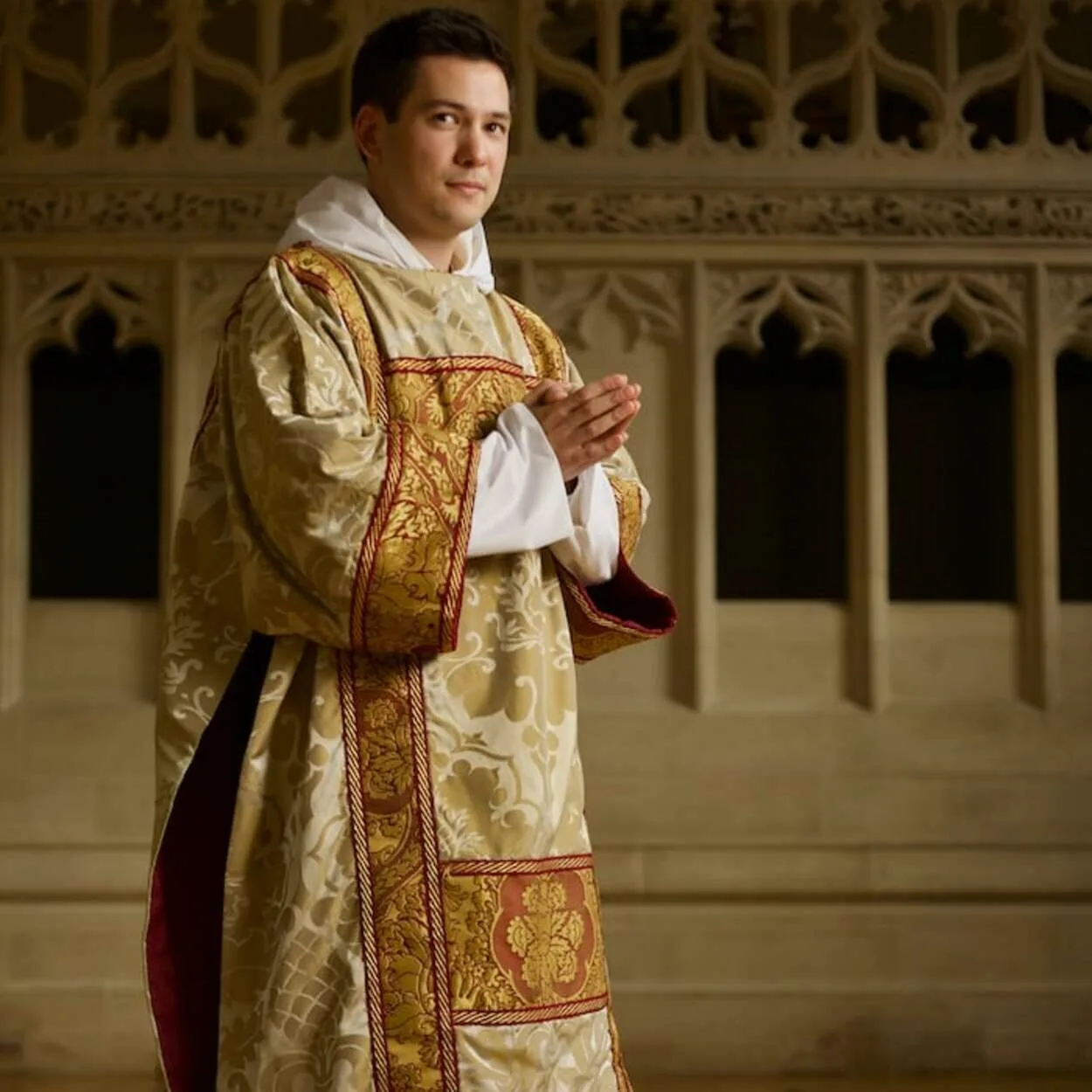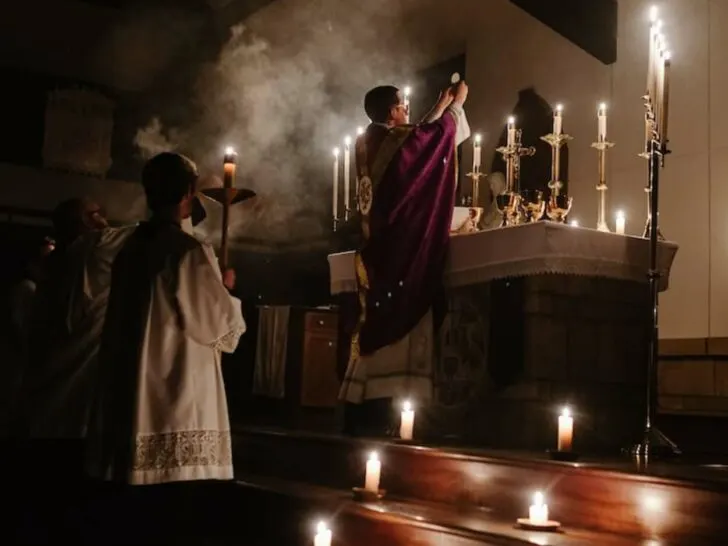A pastor is a person who oversees a congregation and gives spiritual direction within an individual church body. A reverend, on the other hand, is an honorable designation for clergy, including pastors, ministers, and priests, emphasizing their appointed position.
Numerous titles and conducts cover the religious landscape, which can at times befuddle people. Among these, “pastor” and “reverend” are frequently used but mistakenly interpreted terms.
Although they both indicate positions of religious leadership, their duties and meanings are different.
In this article, I will explore the differences between a pastor and a reverend, revealing their functions, designations, and social situations.
Understanding the Roles
It is vital to carefully consider the functions of a pastor and a reverend to grasp the differences between the two. Let’s observe each of them separately:
The Role of a Pastor
- A pastor is the spiritual body of any specific parish or church.
- Leading services of worship and giving sermons are among their main responsibilities.
- Giving the congregation pastoral assistance, advice, and care.executing religious rites including weddings, burials, and sacraments
- Offering spiritual direction and assisting members’ spiritual growth.
- Managing administrative responsibilities and running the church’s everyday operations.
The Role of a Reverend
An honorable title known as “reverend” is used to refer to people who have been appointed in religious settings. Pastors, ministers, priests, and other occupationally recognized clergy members can all be known as reverends.
- Based on the particular organization or religious tradition, their tasks might differ, but often they rule over religious rituals including worship sessions and sacraments.
- They offer the congregation pastoral care and guidance.
- They are providing spiritual direction and spreading religious doctrine.
- Taking part in social and community outreach projects
- Presenting the church or a religious organization at interreligious seminars and gatherings

Comparison Between Pastor and Reverend
| Aspect | Pastor | Reverend |
| Primary Role | Congregation leader | Ordained clergy |
| Use of Title | Addressing a pastor | Addressing ordained clergy |
| Denominational Range | Various Christian denominations | Multiple religious traditions |
| Responsibilities | Leading worship, providing pastoral care | Presiding over ceremonies, offering spiritual guidance |
Can a Woman Be a Reverend?
Women can serve as reverends.
The policies and beliefs of the particular religious denomination or spiritual tradition decide whether or not women are qualified to serve as reverends or other appointed clergy.
Many religious institutions have recently acknowledged gender equality and permitted women to be appointed as reverends or maintain other positions of leadership in the clergy.
How Does One Become a Reverend?
Various religious traditions and denominations have different procedures for electing clergy members to positions of reverend or appointed clergy.
It often requires obtaining a theological education degree, frequently in a seminary or divinity school, and accomplishing specific criteria established by the religious organization.
If you are trying to become reverend. then must have to spend 3 years consistently in college to complete your theology degree. This is the degree that which church asks at the time of appointment and it is recommended the most.
Well, In this you are required to be a quick learner to understand practical ministry skills. These skills come with a degree in theology.
Many other things are required to be reverend just as understanding religious texts, ethics may fall under this category.
Can a Reverend Marry People?
Reverends frequently have the power to perform marriages, especially those who are pastors or trained clerics.

They can legally participate in weddings and help couples get married by the traditions and customs of their religion. It is essential to review the exact legal demands and doctrinal standards of the relevant jurisdiction and denomination.
Difference Between a Pastor and a Priest?
Priests in some faiths are given sacrificial authority, but pastors in other denominations have a wider range of obligations within their congregations. These differences are reflected in the different religious traditions.
- Pastor:
A pastor is a protagonist within a particular church or congregation who is mostly in charge of giving guidance in spiritual matters, leading worship, and providing pastoral support to the community’s residents.
In both Protestant denominations and non-denominational churches, pastors are frequently noticed.
- Priest:
In contrast, a priest tends to belong to the Catholic, Orthodox, or Anglican lineages. They were given the sacrament of Holy Orders and are ordained clergy.
Priests can deal with sacraments, conduct religious rites, organize worship services, provide spiritual guidance, and fulfill other roles as a representative of their religious organizations.
Can a Reverend Be Married?
Across numerous religious traditions and faiths, there are separate laws that regulate marriage for reverends or other ordained clergy members.
Priests are generally supposed to be sterile and unmarried in several religions, such as Roman Catholicism.
Reverends can, however, be wedded in other Christian denominations and religions, such as multiple Protestant churches, Anglicanism, and Judaism. Some religious organizations recently went over and modified their rules to let clergyman members, including reverends, be married.
Are Pastors and Reverends Paid?
Pastors and reverends are paid differently based on the organization, the population of the congregation, and the church’s financial stability.
Pastors and reverends usually are compensated by the church or other religious body they’re working for. Living expenses, healthcare perks, retirement investments, and other perks might all be covered by this payout.
However, the specifics of reimbursement, especially for smaller or self-sufficient churches, may vary substantially, ranging from full-time income to part-time or volunteer employment.
Well, there are some churches where the pastors are not satisfied with their salaries which may lead to leaving or changing the church but it totally depends on the pastor.
Can a Pastor or Reverend Change Their Denomination or Faith Tradition?
Pastors and reverends are allowed to shift their religious denomination or faith tradition.
By an official application procedure, they can transfer their membership and service to another church within an identical faith tradition. Pastors or reverends can go through a religious conversion and opt to join a different religious community.

To do this, they must abandon their present religious institution and request ordination or permission within a new spiritual tradition.
Pastors and reverends have the choice of switching churches or religious traditions, though the particular procedures and requirements differ. But these changes are made after checking all the circumstances and outcomes.
Conclusion
- Although the term “reverend” is a dignified title for an appointed clergy member, a pastor is a particular position inside a church.
- Pastors operate as congregational leaders, preachers, and pastoral carers; reverends are a larger category of appointed religious leaders.
- Though pastors are typically connected to Christian faiths, the name “reverend” varies through many religious traditions.
- Pastors are present in running the church on a regular schedule, whereas reverends are centered on officiating at religious events and giving spiritual matters counsel.
- Pastors and reverends both provide important roles in encouraging faith, providing assistance, and enhancing the spiritual health of the communities they serve.
- Pastors and reverends have the choice of switching churches or religious traditions, through particular procedures.
Related Articles
- What’s The Difference Between Helios And Apollo? (Explained)
- What Are The Differences Between The NIV And NLT Versions Of The Bible? (Explained)
- What Are the Doctrinal Differences Between The KJV And The ESV Versions? (Facts)
- The Difference Between The Church Of God And Church Of Christ Religions Which One Means Christian/Seventh Day Adventist? (Discover)

